7. Validating award letters for consistency drives college costs down to the absolute minimum.
Old Way
We accept the award letter at face value. Families sophisticated enough to file appeals or initiate professional judgement do so without the right data.
Old Result
We end up overpaying the college by thousands of dollars. Multiplied over 4 years, this can be a staggering amount.
New Way
We evaluate all financial aid appeal or professional judgement strategies. We go into the appeal with the data we need so we know how far we can go.
New Result
By validating award letters through financial aid appeal, we leave no money on the table. We get into colleges with the highest possible gift aid (need and/or merit aid) and at the lowest possible cost.
Many families think that the first offer from the college is the best and only offer. Often times this is simply not true. Award letters can be negotiated, but don’t call it a “negotiation” when speaking to the colleges directly.
Colleges prefer terms such as “financial aid appeal” and “professional judgement.” The term “negotiation” implies even footing. Colleges don’t like that.
There is a lot of noise around this topic and sorting through the details is just like everything else: How do you make sense of it all?
Sources: Below are various article screenshots on the subject from numerous outlets ranging from Forbes, New York Times, and Washington Post. Despite the amount of media coverage on the subject of financial aid appeals, there are several points consistently omitted.
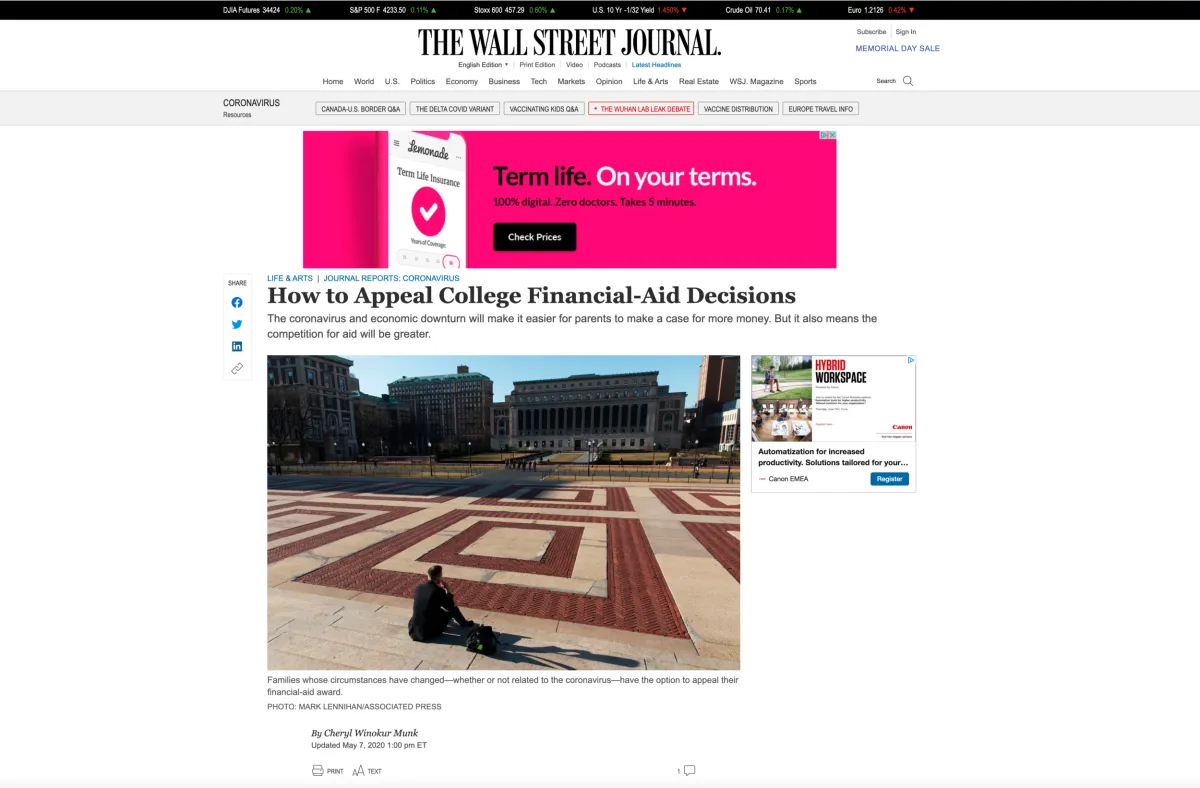
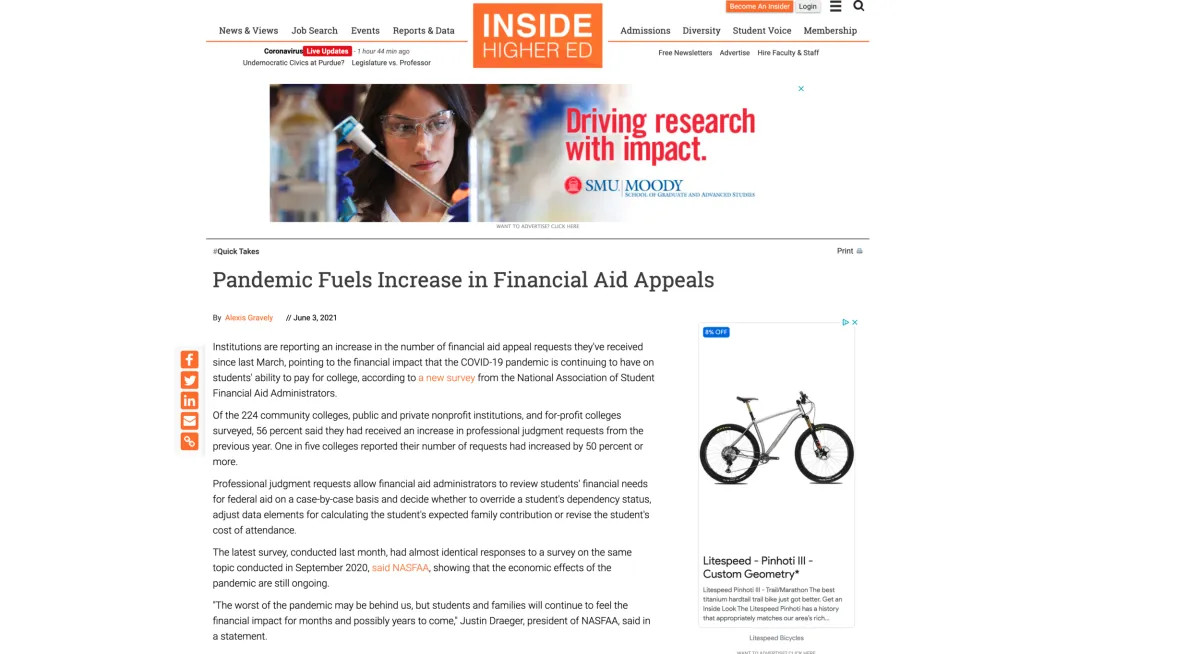

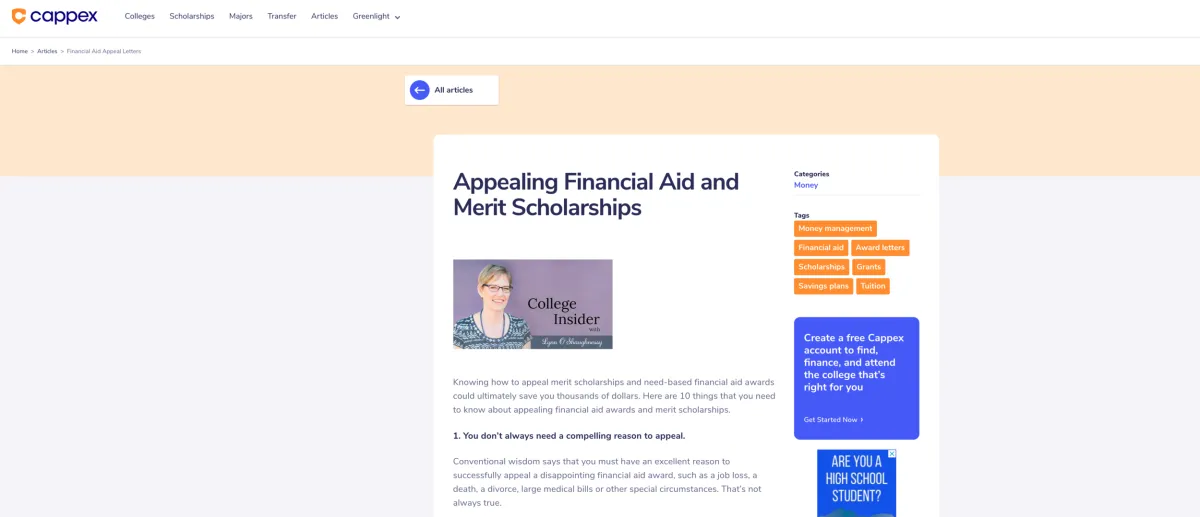
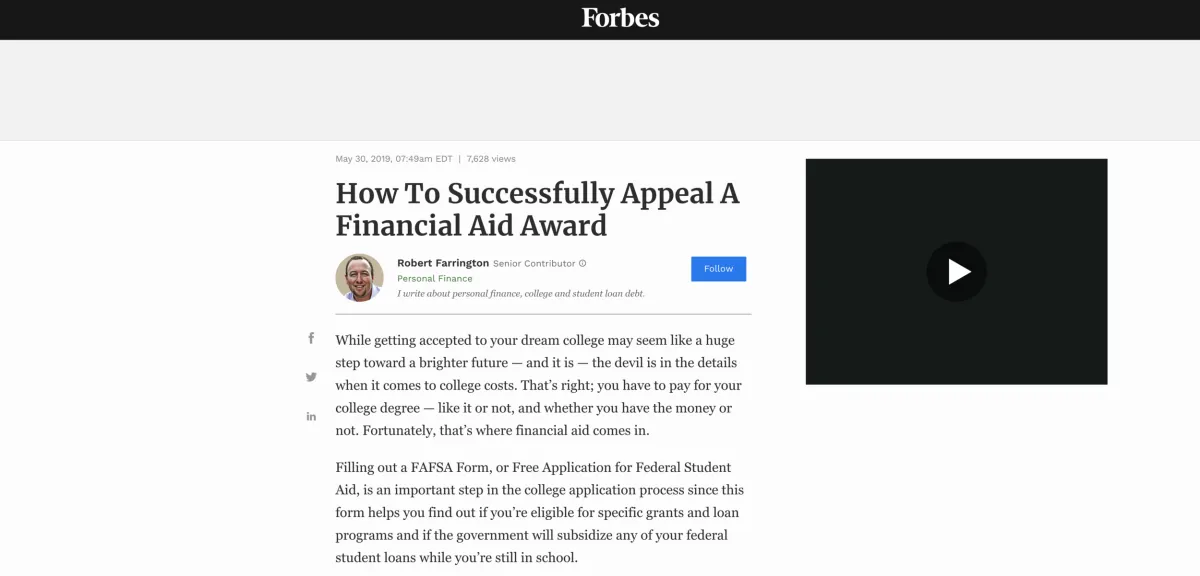
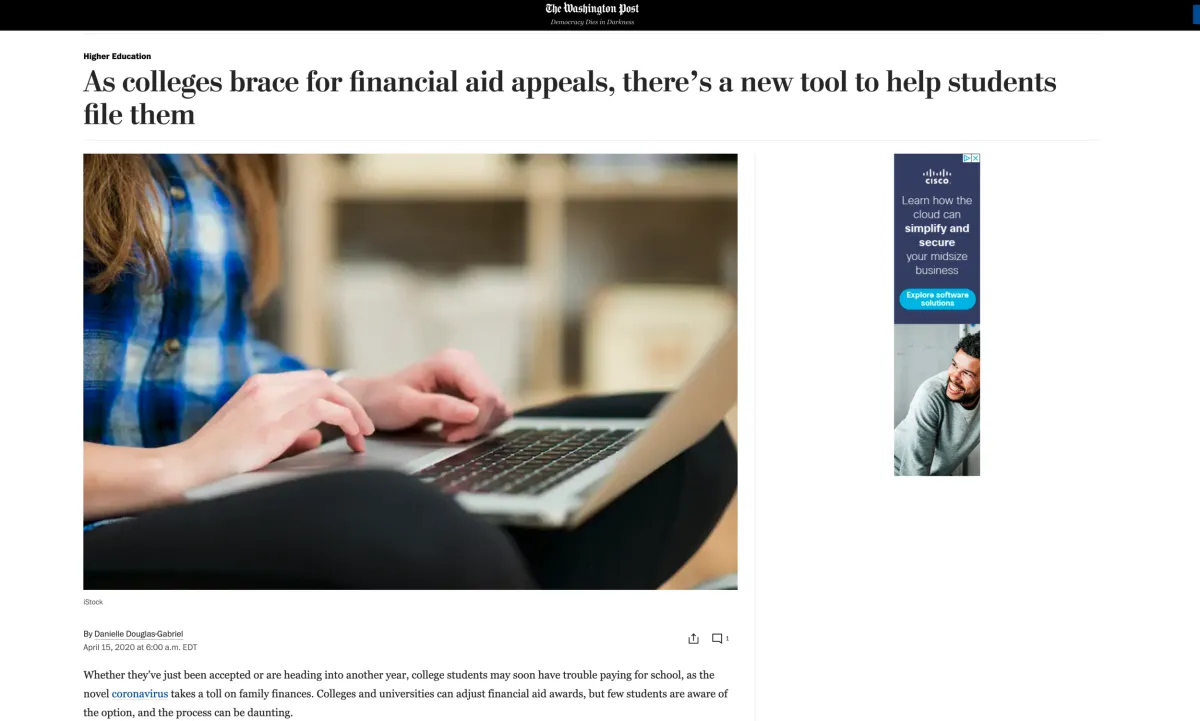
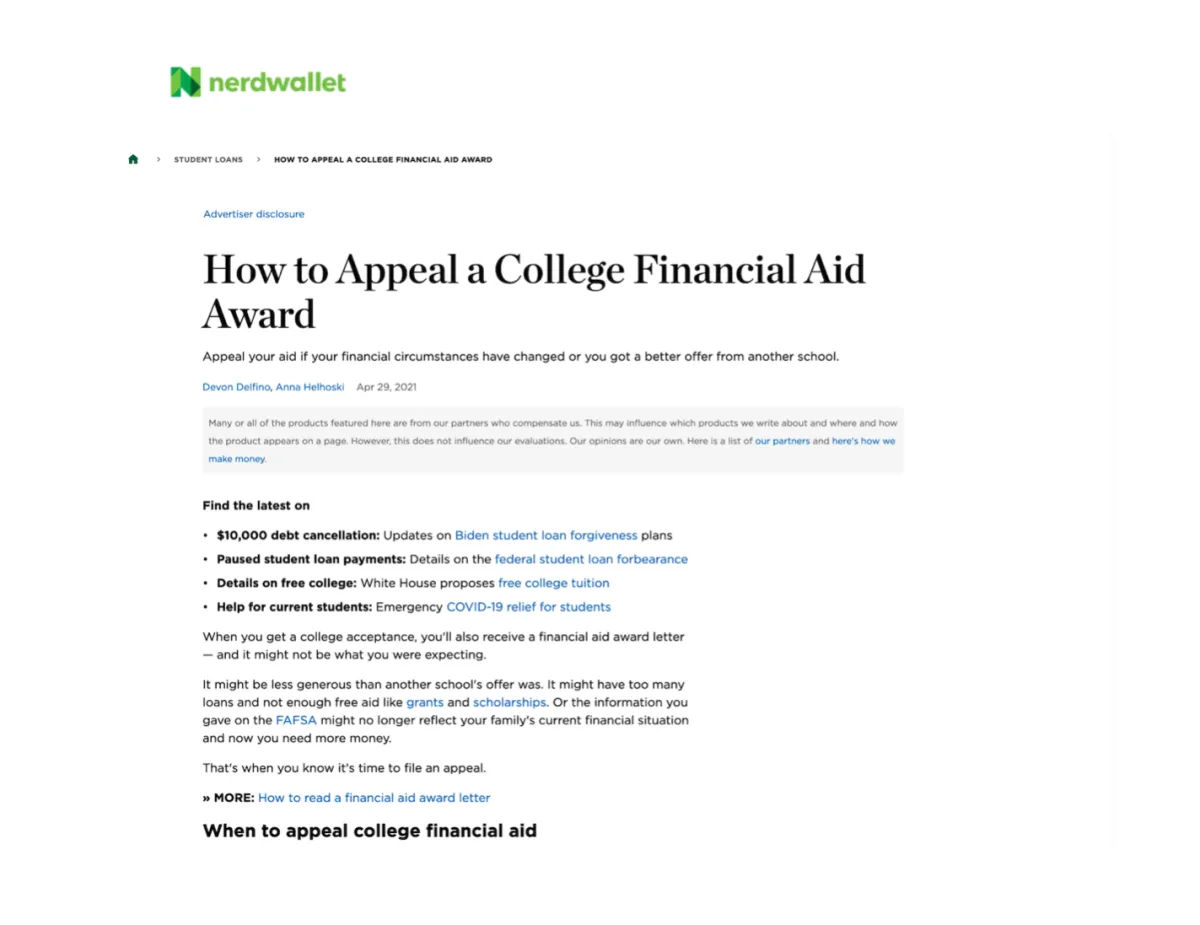
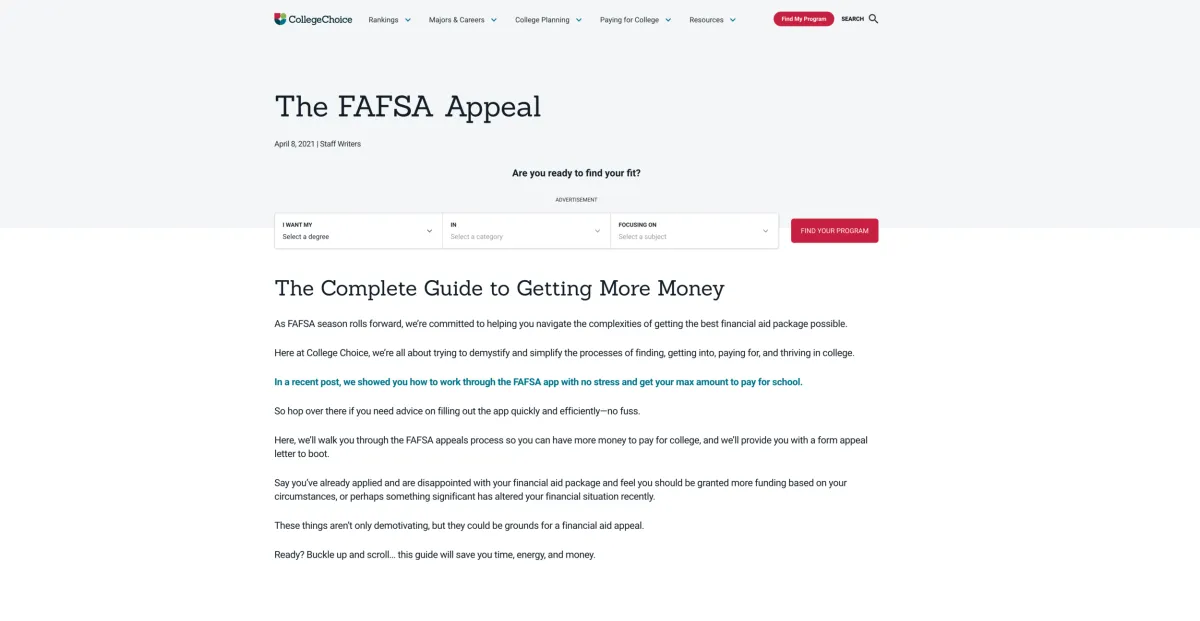
Here are several points the articles DO NOT cover. We’ll start by giving you some ground rules about financial aid appeals that you should know:
Not all colleges will entertain an appeal. Some colleges will only consider appeals based on unique or major life events such as a divorce or the loss of a job. However, many colleges will consider appeals that take on one of three basic forms:
You can ask for more money and see what happens.
You can ask for more money and give them a number to see if they’ll match it.
Some combination of the first two approaches and you supply an award letter or multiple letters from a competing college.
An appeal works best when you consider three things:
The side that names the number first usually loses. In this case, that’s the college.
Never go into an appeal without knowing what your number is supposed to be.
You do not have to accept the first “no” from a college.
You can “appeal up” but this requires advanced planning.
Without knowing how much money you were supposed to get from the college in the first place, you will never realize the full potential of your appeal strategy. Without the right data, you can’t play in this sandbox.
FAQ
This seems easy enough. Can’t I just try this on my own?
You sure can. We just can’t promise you will get the same result.
I’ve read about this and tried it. It does not work. How can what you are saying here even be true?
What data did you have? What strategy did you use? If we had to guess, you probably went in blind.
Where do you get your award letter data?
Our team has been doing this for over two decades and we save every award letter we can get our hands on. We have an exhaustive archive of award letters from just about every college in the United States. Nobody even comes close to what we have. We also break down and analyze the award letters against the student’s academics and the family’s financial footprint. You would be amazed at what we know.
I wish I knew this when I sent my first kid through college. Is there a way to go back and get more money?
Typically the answer is no. However, if a major life event occurs such as a divorce or a loss of employment, there may be something you can do.
©2026 Game Theory College Planners, Inc. All rights reserved. Privacy Policy | Terms of use | We are a national service provider based in Atlanta, GA.

